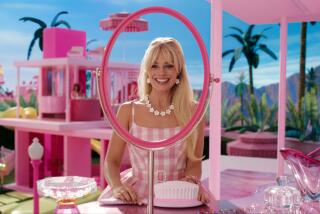Book Review : Trials and Pressures of the Coming of Age
- Share via
The Pull by Bobby Jack Nelson (St. Martin’s: $15.95)
Bobby Jack Nelson’s third novel, “The Pull,” is a classic example of the Bildungsroman : a young person coming of age in the midst of hard times, difficult choices, internal pressures and all of nature closing in fast.
This kind of novel has attracted strong literary voices throughout the world, but it seems to have particularly flourished in the hands of American writers such as Herman Melville, Mark Twain, Carson McCullers and Saul Bellow, each of whom has had at least one memorable go at the form. As diverse as these writers are, and as different as Nelson is from them, they have at their core--and the American Bildungsroman has as its armature--the element of regionalism which, in its very specificity, becomes universal and compelling.
An Elemental Theme
Focusing on Bud, a poor country boy just shy of 15, who has been taken from a comfortable if uneventful life by his true father, Sailor, years before, Nelson introduces a traditional set of characters to play out his elemental theme. To complete his virtuoso performance, he adds another traditional element--a contest--that gives this novel its title, subtext and reason for being. He does this with seemingly effortless grace, materially assisted by lean prose that, in its directness, becomes revelatory and absorbing. Nelson has flirted with cliche in a contest of his own and he has won; he has taken on the ordinary and by besting it has produced surprise.
Bud and Sailor work as independent loggers, disdaining chain- or handsaw, felling trees and trimming them with axes. They camp in the forest and haul their logs to the sawmill with a remarkable matched pair of mules, Judy and Mawd. Bud and Sailor are completely unmechanized, a fact that delights Sailor, rankles Bud: “For the first time we were going into town without the team and wagon, and I was glad. Riding the wagon to town was something I’d grown to dread. It was all right in the country. It was natural there. But in town it turned us into outlandish sort of characters and a kind of spectacle. Everybody gawked at us so, and we’d poke along, and the cars would stack up behind us and honk.”
Other Preoccupations
Sailor has preoccupations of his own: “ ‘. . . you go out and cut down trees and you think that’s it. But the first thing you know, you look around and they’ve grown back right behind you.’ ”
“ ‘Not right away.’ ”
“ ‘Right away or in 20 years, what’s the difference? It’s all the same. You cut a track and it grows back like you’ve never been there. You think you’ve made a dent, but you haven’t. You can’t tell where you’ve been.’ ”
Bud’s romantic involvement with a waitress named Hominy is yet another kind of pull, matched in intensity only by the contest in which Judy and Mawd are entered and upon which the outcome of a number of risks depends.
“The Pull” is an adroit picture of poignancy, wisdom and brutality, filled with attitudes and advice that show us how to endure the pulls in our own lives.
More to Read
Sign up for our Book Club newsletter
Get the latest news, events and more from the Los Angeles Times Book Club, and help us get L.A. reading and talking.
You may occasionally receive promotional content from the Los Angeles Times.










